Travelling after Brexit: How will things change for the UK?

Well, it happened. We actually left with a deal! So what are the new rules that we need to abide by? Can you use your old passport? Do we need a visa to enter the EU now? Well, these are all the questions we’ll be answering below!
| Passports | Visas | Booking Holidays | Airport Queues | Duty Free | Flights & Hotels | GHIC |
| Data Roaming | Driving |
This article has been compiled using information currently available to us, mainly from the Gov.uk website. We will endeavour to keep this as up-to-date as possible, as we appreciate some information may change over time. Last updated in July 2023.
Do I need a new Passport after Brexit?

Take a look at your current passport; does it have less than 6 months until it expires? If so, get yourself a new one as you will need at least 6 months on your passport to travel within the EU and it’ll need to be less than 10 years old. This won’t apply, however, to travel to Ireland as it’s part of the Common Travel Area. If you need a new passport, be sure to apply in plenty of time and don’t be surprised when your new one arrives and it’s blue! (Or black as a lot of people seem to think it is. I mean, it looks black to me…)
Please note: You will not need a new passport until your current one expires. I used the Check a Passport service on Gov.uk and my passport is valid for EU travel until September 2026 (6 months before it expires), so there doesn’t seem to be a rush to renew them, yet!
Travelling after Brexit: Not everyone will need a visa

From 2022, if you’re aged 18-70, you’ll need to apply and pay for an ETIAS (European Travel Information and Authorisation System), which is just like an ESTA, if you’ve ever travelled to the U.S.
It’ll cost you just £6.30 (€7, which is still cheaper than an ESTA) and is valid for 3 years. This system will be brought into practice from November 2023 so until then, you’re free to travel throughout the Schengen Area* on just your passport or Identity Card.
The ETIAS is an electronic way of keeping track of visitors to and from the country that uses them. They take around 10 minutes to complete online and collects personal data such as your passport details, any criminal history and your return decisions.
Automatic application processing takes a matter of minutes and once you have been authorised, be sure to keep a copy of the authorisation. Printing it out and keeping it with your passport is the easiest way to make sure you remember to take it with you.
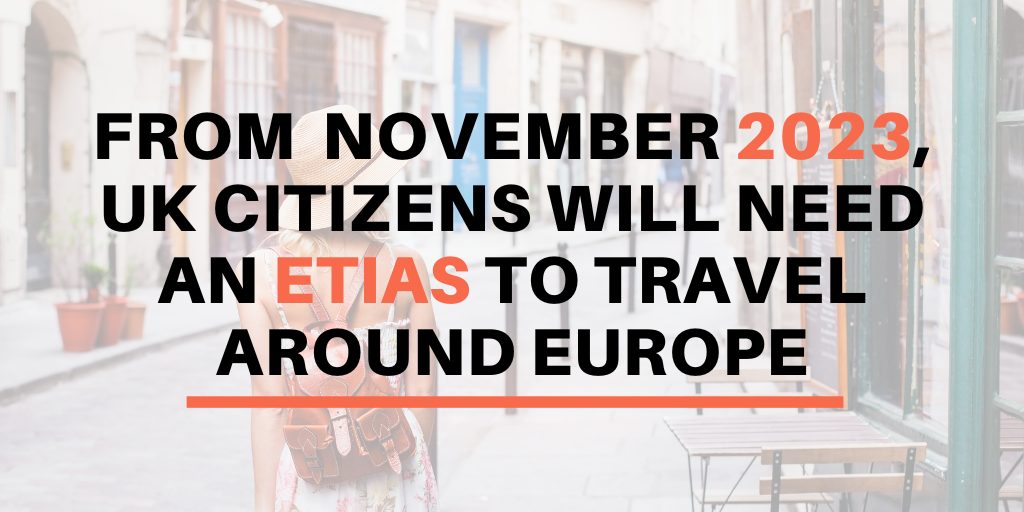
The ETIAS will allow you to travel within the EU for up to 90 days in any 180-day period^. This means that travelling after Brexit for short business trips & holidays should hopefully remain un-affected, but rules around extended periods of work, travel and studying abroad then change as you may need a visa. You will need to check the entry requirements of the country you are travelling to.
^ If you’re a tourist, you do not need a visa for short trips to most EU countries, Iceland, Liechtenstein, Norway and Switzerland. You’ll be able to stay for up to 90 days in any 180-day period.
Different rules apply to Bulgaria, Croatia, Cyprus and Romania. If you visit these countries, visits to other EU countries do not count towards the 90-day total.
– Source Gov.uk
*What’s the Schengen Area?
The Schengen Area is a borderless collection of European countries, excluding Bulgaria, Croatia, Cyprus, Romania and the United Kingdom, which make up the World’s largest visa-free zone. This means travel between the 26 member states is unrestricted and works to harmonise the rules on the external borders. When we leave the EU, there have been discussions about the UK joining the Schengen Area, like other non-EU countries such as Norway and Switzerland, but this remains to be seen.
Booking Holidays After Brexit

There have been many stories floating around stating that post-Brexit, we won’t be able to fly or sail as the ports and airports will just shut down. We have been reassured by the European Commission that this will not be the case.
How does Brexit affect my passenger rights?
What happens if your flight is delayed or cancelled? There is currently a regulation in place that helps passengers claim compensation in the event of a delayed or cancelled flight, or are denied boarding. This is the EU261 and it will remain relatively unchanged post-Brexit, meaning your passenger rights are the same as before.
You will still be able to book holidays and travel!
What queue do I need to use at the airport after Brexit?
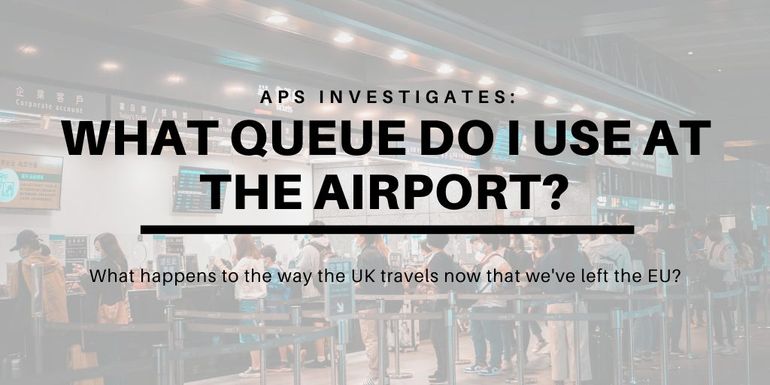
Unfortunately, we’ll no longer be able to use the fast-track customs and passport control lanes in EU countries. You may also be asked to provide proof that you have enough funds to support your trip and be asked what your return plans are.
What does Brexit mean for Duty Free purchases?
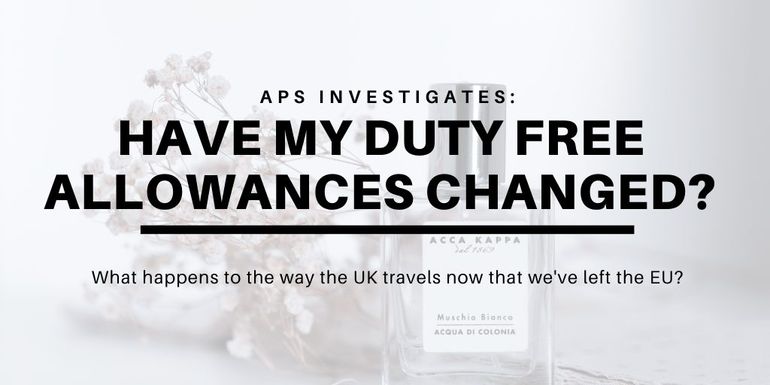
Everyone over the age of 17 will have a personal allowance of goods they can bring into England, Wales and Scotland when travelling after Brexit. These are detailed as follows;
Alcohol & Tobacco
- 42 litres of Beer
- 18 litres of Wine (not sparkling)
You can also bring in either:
- 4 litres of Spirits and other Liquors over 22% alcohol
- 9 litres of fortified wine (for example port, sherry), sparkling wine and alcoholic drinks up to 22% alcohol
You can split this last allowance; for example you could bring 2 litres of spirits & 4.5 litres of fortified wine (both half of your allowance).
- 200 cigarettes
- 100 cigarillos
- 50 cigars
- 250g tobacco
- 200 sticks of tobacco for electronic heated tobacco devices
You can split this allowance – so you could bring in 100 cigarettes and 25 cigars (both half of your allowance).
Please note: You may have to pay VAT, customs duty and excise duty on Alcohol and Tobacco you declare. You need to declare anything that you bring into the UK that exceeds your personal allowance. To make the process simpler, you can declare your items up to 72 hours before travel online.
Importing other goods
You are also allowed to bring in up to £390* worth of other goods/cash, but be warned; if you go over this allowance, you may have to pay tax and duty on the total value of the goods, not just the value above the allowance.
*£270 if arriving by private plane or boat.
Are flights and hotels more expensive after Brexit?

It’s hard to say; it’s really dependent on the value of the pound against the Euro and the US Dollar and the price of oil. Given that the UK is one of the biggest travel markets for Europe at the moment, it would be hard to imagine countries who rely on our tourism will make things difficult for us by increasing prices. We’d hope, anyway!
If the pound to dollar rate decreases much more, flight prices may increase because oil is priced in US Dollars. As you can probably tell, we really don’t know any answers yet.
Not to mention, we don’t know the impact Coronavirus will have on it the value of our pound!
Does Brexit invalidate my EHIC Card?
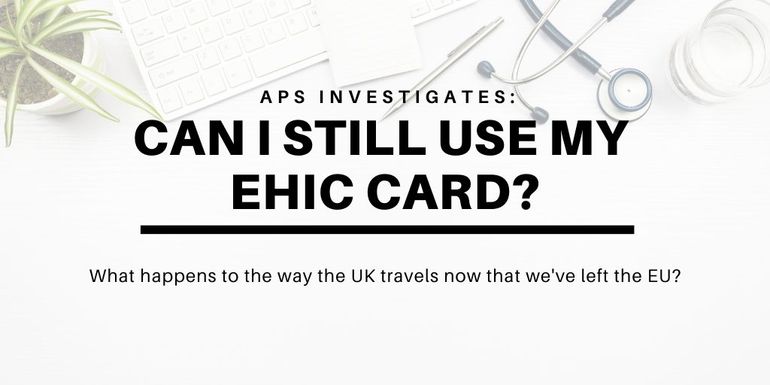
Carrying an EHIC card, previously known as the E111 card, whilst visiting another EU country entitles you to state provided healthcare or treatment should you fall ill abroad.
What we now know is that current cards issued before the end of 2020 will continue to be valid until they expire. The Government plan to introduce a UK Global Health Insurance Card (GHIC) which will work similarly to its predecessor; covering emergencies, maternity care and existing/chronic illnesses. It is easy to apply for one, you simply need your national insurance number. You may also apply for your family members at the same time, all you need is their national insurance number and they need to be over 16 years old. It is unlikely but you might be asked for an NHS number. If you don’t know your NHS number, you can easily find out the NHS number by clicking here.
– Thank you to reader Martin for asking the question in the comments, prompting the addition of this important point!
Data Roaming charges; do they come back?
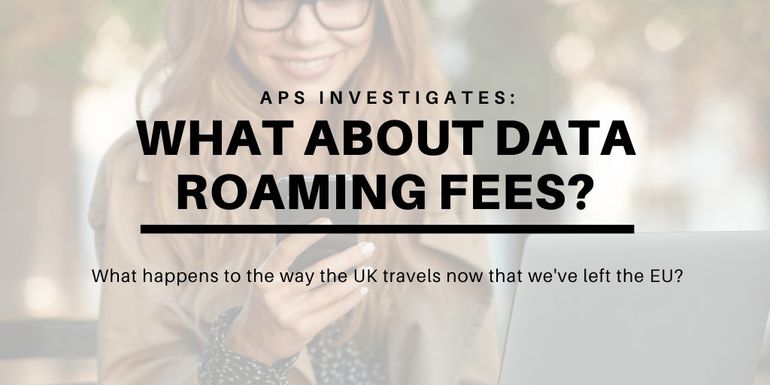
Short answer? Check with your phone provider as they are no longer obligated to provided free data roaming. However, the four main UK providers have said they don’t plan on re-introducing the charges for their customers.
The UK government has passed a law that providers are to set a £45 limit per monthly billing period on data charges, with warning messages to tell you when you reach 80% and 100% of your limit, thus hopefully not causing you too much of a heart attack when you get your post-holiday bill through.
Can I still hire a car or drive mine abroad after Brexit?

You will be able to do both after Brexit, but the documents you’ll need may change. Your drivers’ licence will still be valid abroad if it’s a UK Photocard one. If you only have a paper licence, or it was issued in Gibraltar, Guernsey, Jersey or the Isle of Man, you’ll need to purchase an IDP (International Drivers Permit).
Applying for an IDP will set you back a mere £5.50 and you can pick up the application forms from your local Post Office. There are 3 types of IDP available, the 1926, 1949 and 1968 and which one you’d need is dependant on the country you’re driving in. To check which one would be suitable for you, head over to Gov.uk for more information. This is especially important if you drive for work or intend to drive across multiple countries.
If you are driving your own car abroad, you will now also need a Green Card from your insurance provider; this is proof that you have insurance cover and would need to be presented should you be in an accident or be pulled over by the police.
Are we be worse off after Brexit?
With regards to travelling after Brexit, the biggest change we will see as tourists will be the need for an ETIAS, which isn’t the biggest deal if we’re only jetting off a few times a year. Whilst needing a visa to work or study abroad is an inconvenience, the rules could have been a lot stricter!
I guess only time will tell how much Brexit changes our travel habits; watch this space!